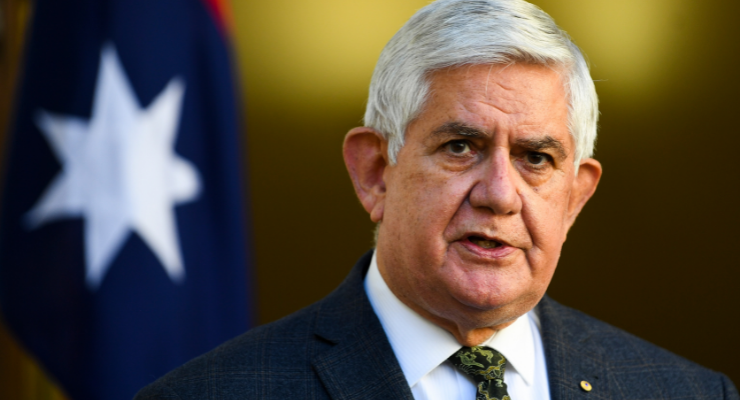
It’s been four and a half years since the release of the Uluru Statement from the Heart, which outlined a clear pathway towards Indigenous reconciliation. Yet no legislative progress has been made.
In consultation with 1200 First Nations people from across the country, the statement proposed a Voice to Parliament and a truth-telling commission that would seek an agreement akin to a treaty.
Last week the Minister for Indigenous Australians Ken Wyatt said the government had “delivered” on its promise to design a Voice to Parliament. But instead it released a report to “enable broader community discussion and consultation with jurisdictions”. Not so much as a job done, but more a tentative first step.
With no legislation in sight, it’s a small move towards giving Indigenous Australians the representation they deserve. The pace of reform is incredibly slow given the government has been sitting on the report for six months.
The fight is not over
Wyatt is not the first leader to move slowly on the issue of Indigenous reconciliation. From the 1967 referendum through to the Redfern address and the National Apology, attempts at Indigenous reconciliation have been hard-fought.
But pressure is mounting for a Voice to Parliament to be introduced by whoever wins the next election.
Steps that have been taken by previous governments have mainly revolved around how to rectify wrongdoings of the past. But the real work of reconciliation, such as greater representation in Parliament and a treaty, is still a long way off. The issue is not going away, with calls for these issues to be addressed growing by the day.
Where are we up to?
Last week the government announced it would form 35 local groups to report to a national body with a view to providing “non-binding advice to Parliament” on issues affecting Indigenous Australians. The announcement followed recommendations in a report into the issue by an advisory group chaired by Marcia Langton and Tom Calma.
The announcement marks some progress but still falls well short of the government’s commitment to introduce a Voice to Parliament before the next election. Wyatt said it has been a two-year process to design the Voice in collaboration with First Nations communities. It may be that the government is trying to get the design right, but it is still another broken promise in a drawn-out battle to give Indigenous Australians the representation they deserve.
What next?
Since the Morrison government has failed to introduce any meaningful legislation before the election, it will be up to whoever forms the next government to decide what the next steps will be. Such decisions will include how these bodies are enshrined in the law, including whether it requires constitutional protection. While the Langton report left this decision open, it documented the strong view in favour of constitutional change expressed among those consulted. The question of a referendum will have to be addressed by the next government, but the pressure is mounting.
Constitutional reform was once considered a lofty prospect, with Malcolm Turnbull rejecting the proposal after the release of the Uluru Statement. Public sentiment has shifted and now there are supporters of the move on both sides of Parliament. Unlike the Coalition, Labor has committed to seeking constitutional change. As for the introduction of a truth-telling commission, no further commitments have been made, despite it being an arguably more achievable goal.








Ken Wyatt is NOT any type of leader. He is a completely useless LNP patsy and token Aboriginal in the Coalition. He did nothing for the Aged & Health and he will do nothing for his own people because all he is interested in is taking his pay packet while not rocking the boat and achieving SFA.
Ken Wyatt has never represented the Aboriginal community at large. He has a hand-full of fringe-dwellers hanging out for a job of sorts as a consultant or advisor. The leadership know who they are and they totally reject the LNP’s stooge Wyatt.
It’s a dead-end unless Wyatt, Morrison and the other racists are tipped out.
” … long drawn out battle to give indigenous Australians the recognition they deserve”!! Give me a break! If they’re Australians they already have the “recognition” they deserve, same as me! No other Australians get special favoured treatment on the basis of some long diluted genealogy yet virtually EVERY Govt dept and virtue signalling company has a prominent empty statement piously describing their commitment to the original Australians relationship to the earth and waters and elders past present and emerging etc etc. Well maybe but we’ve now moved on some 250 years and NO ONE of any stripe has a sacred or unique bond to anywhere in our shared Commonwealth of Australia yet to give two examples of favouritism, “Aborigines” now have exclusive control over Uluru and without so much as a by your leave or if you please, Fraser Island has just been renamed K’gari! For an “unrepresented” group I’d say Aboriginal Australians are doing pretty well so the LAST thing they need is “a voice to Parliament” otherwise we’ll have apartheid in reverse.
Well I’m glad you got that off your chest but statistically Aboriginal Australians are doing extremely poorly in health, education, longevity and living standards to name a few.. we have a looooong way to go….